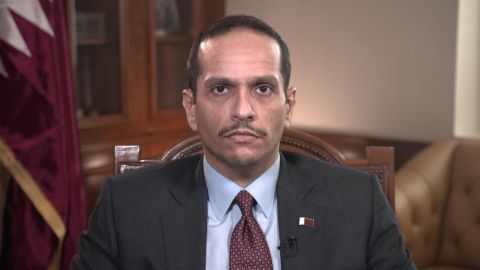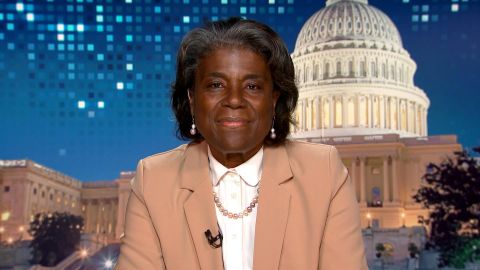Read Transcript EXPAND
CHRISTIANE AMANPOUR: So, Foreign Minister, we have talked to U.N. officials, and they agree with you. Everybody thinks that the Afghan people need to be helped, particularly with food and refuge and shelter and all the other things humanitarian-wise. But I want to ask you, because you have just raised these two issues. Why do you think that they have showed any inclusivity? I think the international community was quite shocked that they reverted to type when they names their so-called interim government, hard-liners across the board, no women, no ethnic minorities, nothing that showed — no opposition parties or whatever, nothing that showed that they would be inclusive. And subsequently, as you know, they have prevented girls from going to school in the latest intake. They have closed down the women’s ministry, and you know that the women’s issue is vital to the international community. Where do you see any inclusivity or willing to play international ball by the Taliban right now?
MOHAMMED BIN ABDULRAHMAN BIN JASSIM AL THANI, QATARI FOREIGN MINISTER: Well, actually, what I have just referred to, I totally — first of all, I totally agree with all these points that you have raised. And we want to see an inclusiveness and to see an inclusive government to sustain the peace and stability in Afghanistan, because we know that excluding any party or any minority won’t be sustainable for a peaceful Afghanistan, for the stability of Afghanistan. Yesterday, announcement of the appointment of some from different ethnicities, whether us from the Tajik or from the Uzbek, and there is also a one deputy minister, I believe, from the Hazaras, and some professionals, as I mentioned, was a just a small positive step toward inclusiveness. We should keep urging them to open up and to be more inclusive, to include women, of course, in senior minister and — or ministerial position over there. But, also, on the issue of girls going back to school, we always call and urge the Taliban to be — to preserve the rights of the Afghan people, including women and men. And the decision that was being taken like a week ago about preventing girls from going back to school is unacceptable. And we have been conveying these messages and urging them, in order to make sure that whatever has been achieved in Afghanistan not reversed. And I think the entire international community is united in that front
About This Episode EXPAND
Ambassador Linda Thomas-Greenfield discusses this week’s UN General Assembly. Sheikh Mohammed bin Abdulrahman Al-Thani, Qatar’s foreign minister, discusses his country’s role in the situation in Afghanistan. Former U.S. Marine Corps Infantry Officer Ian Cameron explains the lessons he thinks must be learned from America’s failed war in Afghanistan.
LEARN MORE


